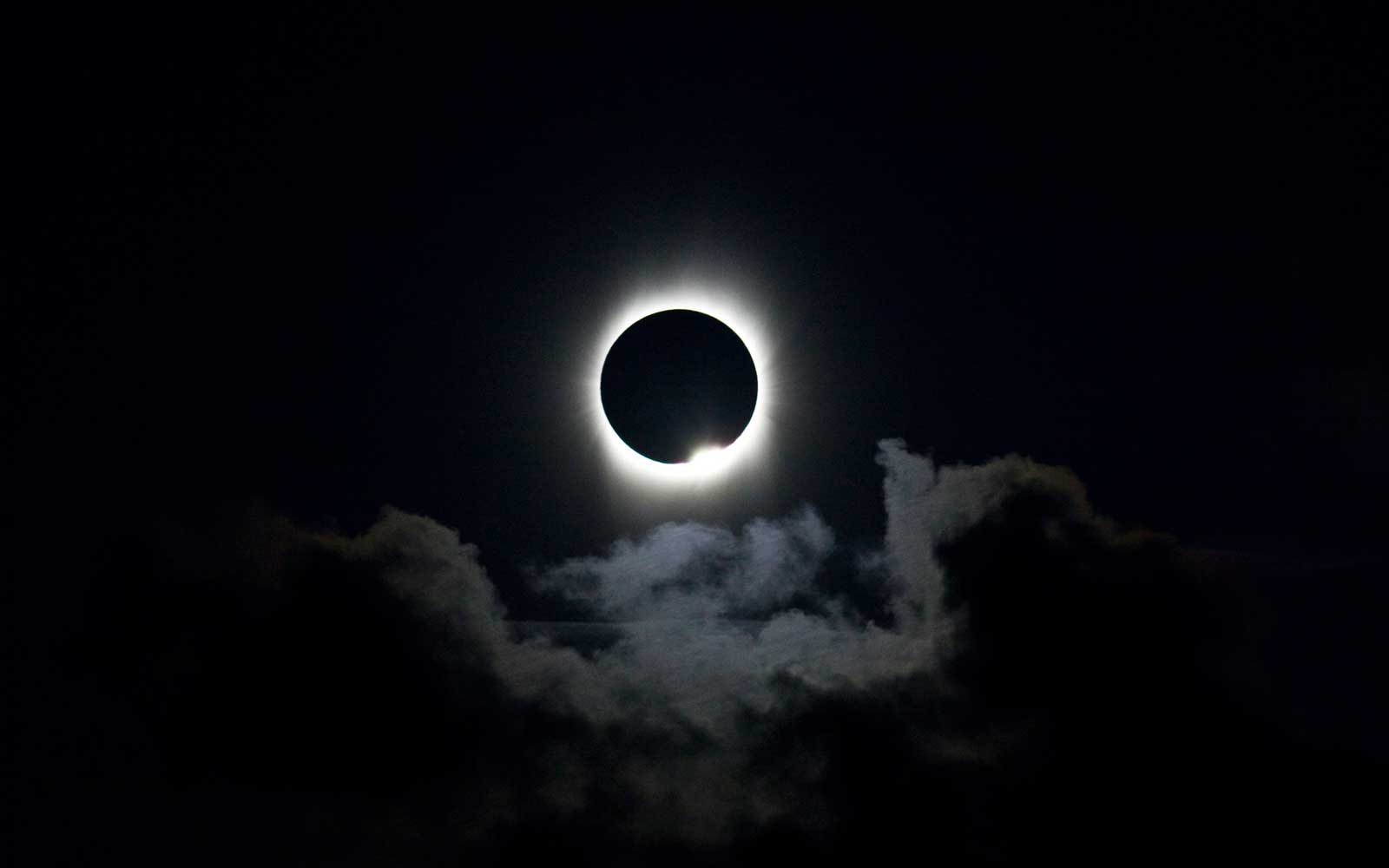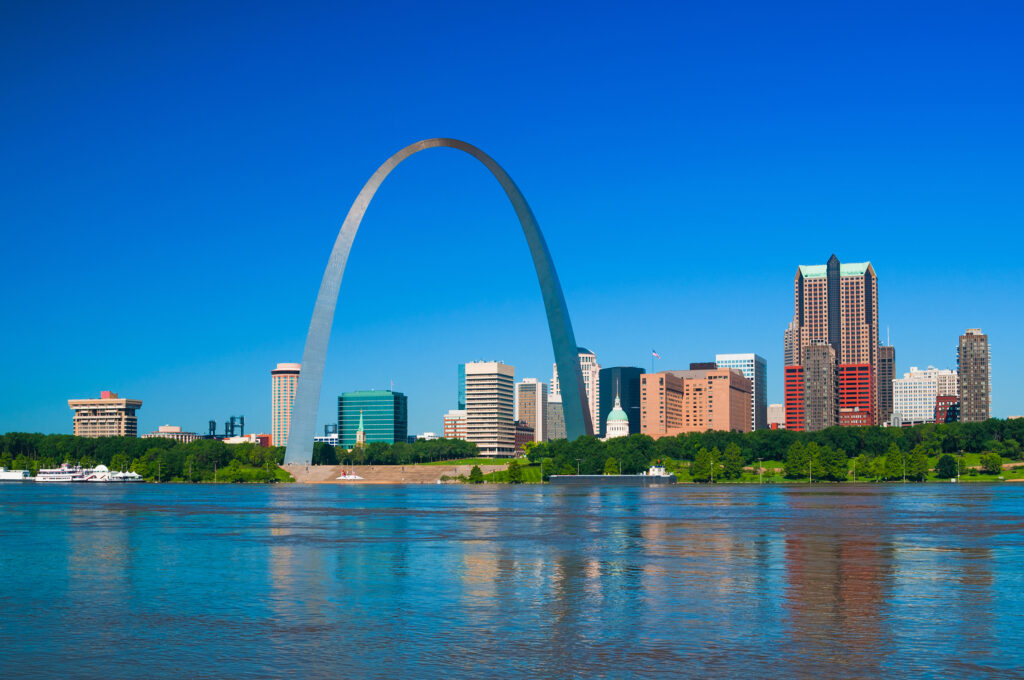
April’s Total Solar Eclipse Is a Must-See. Here Are 5 Charming Destinations in Its Path.
Book your trip now to see the last total solar eclipse in the U.S. for the next 20 years.

Lawrence K. Ho—LA Times/Getty Images
On April 8, North America will see a rare celestial event: a total solar eclipse. During a few minutes of totality, those in the eclipse’s path will witness the moon completely block out the sun, turning day into twilight and revealing the sun’s angelic atmosphere.
You might remember the last total solar eclipse in the U.S. in 2017—and recall how incredible it was. We got lucky in the West, as the eclipse passed from Oregon to South Carolina. We’re not as fortunate this time. The April 8 eclipse will be going over the U.S. from Texas to Maine, skipping the West, but this year’s total solar eclipse is still a must-see.

Ethan Daniels/Getty
This is the last total solar eclipse in the U.S. until 2044, and the next one will only touch three states—Montana, North Dakota, and South Dakota. Also, this eclipse will happen around the peak of the 11-year solar cycle—when the sun’s north and south magnetic poles flip—so more solar activity will be visible. Viewers can expect to see wisps, streams, and maybe even a large eruption called a coronal mass ejection. The duration of the eclipse is expected to be fairly long too. The peak duration of totality of 4 minutes and 27 seconds is nearly double the duration of the 2017 eclipse.
If you were at all wowed by the last one, then this eclipse is certainly worth a trip east. But you need to book now. Online travel agency Priceline ran the numbers on travel costs for the eclipse weekend and found huge price surges. For instance, Priceline says airfares to Austin, Texas, more than doubled during the eclipse but then decreased by 30% afterward. Hotel and rental car costs for cities in the path of totality are skyrocketing too, Priceline says.
To help you plan an affordable (and fun!) trip to see the eclipse, we picked out five cool cities in the path of totality that are closest to the West.
1. San Antonio, Texas

Eric Francis/Unsplash
Nestled in the heart of southern Texas, San Antonio is a vibrant and historic city. It’s best known for being home to the Alamo. The Alamo also happens to be hosting a free watch party during the total solar eclipse!
For nature and a bit of zen, visit the The Japanese Tea Garden featuring stone bridges, a 60-foot waterfall, and ponds filled with koi fish. You can stay in a hotel or Airbnb on the River Walk, a top attraction in downtown San Antonio with endless cuisine and shopping options. When it comes to food, you’ll have to try the breakfast tacos or classic Texas barbecue. San Antonio is known for their smoked brisket and German-influenced sausage, and if you’re in the mood for Tex-Mex, check out the Historic Market Square, the largest Mexican market outside of Mexico.
2. Little Rock, Arkansas

Rdlamkin/Getty Images
Arkansas’ capital city doubles as a charming spot to watch the total solar eclipse. You’ll probably spend most of your visit in the River Market District, the heart of Little Rock’s downtown scene with plenty of bars, restaurants, and shops. You’ll also find the Clinton Presidential Center there. Former President Bill Clinton served as Attorney General and Governor of Arkansas, and his museum holds everything you’d want to know about his life and leadership. For more history, visit Little Rock High School, the school of the brave Little Rock Nine.
While in the River Market District, grab lunch at the Ottenheimer Market Hall where you’ll find a diverse range of cuisine from 17 permanent vendors. But make sure to try the cheese dip! It turns out Little Rock is believed to be the birthplace of cheese dip. This is up for debate, but you’ll still find delicious cheese dips throughout the city. You can skip the rental car and catch the sites in the adorable and convenient METRO streetcar. Or venture just outside of the city to catch the eclipse at the beautiful Pinnacle Mountain State Park.
3. St. Louis, Missouri

Davel5957/Getty Images
The “Gateway to the West” will be a prime viewing spot for this year’s total solar eclipse. While in town, you have to visit the iconic Gateway Arch. The 630-foot structure is the nation’s tallest man-made monument, symbolizing westward expansion in the U.S. You can take a four-minute elevator ride to the top and catch spectacular views of downtown St. Louis and the Mississippi River. Then head over to Forest Park, considered one of the greatest urban parks in the nation. Forest Park’s 1,300 acres of forests, nature reserves, lakes, and streams were once the main fairgrounds of the 1904 World’s Fair, and it would make an excellent setting to witness the eclipse.
In the evening, catch a trolley from Forest Park to The Delmar Loop (or just The Loop to locals), a buzzing entertainment district with plenty of live music and dinner spots. You’ll have to try St. Louis-style pizza with unleavened crust, a bit of red sauce, and tons of Provel cheese. For dessert, taste a St. Louis original: Gooey butter cake. This delicious treat has a yellow cake base beneath a soft, luscious cream cheese layer, topped with powdered sugar. If you have extra time over the weekend, catch a Cardinals game at Busch Stadium. They have three home games the weekend of the eclipse.
4. Tulsa, Oklahoma

Mick Haupt/Unsplash
What was once the “Oil Capital of the World” is now a dynamic city of culture and commerce. The Philbrook Museum of Art, formerly the home of an oil tycoon, is a wonderful place to start your visit with over 16,000 pieces of American, Native American, and European art in the mansion and a stunning 25-acre garden. For more culture, The Arts District boasts plenty of art galleries alongside music and theater venues, as well as several James Beard-nominated restaurants and bars. This is also where you’ll find the Bob Dylan Center, exhibiting the life and work of one of America’s greatest songwriters.
The Arts District borders another nightlife hub, the Blue Dome District, named for the landmark 1924 Blue Dome building that used to serve travelers along Route 66 as a 24-hour gas station. You’ll find restaurants, bars, shops, and entertainment accustomed to locals and visitors alike. When it’s time to witness the eclipse, try the River Parks with 26 miles of paved trails weaving through gathering spots, fountains, and sculptures along the Arkansas River.
5. Mazatlán, Mexico

Matt Mawson/Getty Images
If you’re willing to go international, Mazatlán is a gorgeous coastal city and one of the very first places to see this year’s total solar eclipse. The “Pearl of the Pacific” had its heyday in the 1950s as a popular vacation spot for Hollywood stars like John Wayne and Rita Hayworth, and the city still retains its enticing charm.
Stroll along the Malecón, the city’s stunning beachfront walkway, to Old Mazatlán. You’ll want to set aside the day to explore all the restaurants, bars, shops, and art galleries in this historic part of town. Be sure to walk through the Plazuela Machado, one of the oldest squares in Mazatlán, and take a tour or catch a performance at El Teatro Ángela Peralta, a historic theater. Old Mazatlán also borders the popular surfing beach Playa Olas Altas, and there are a number of beautiful beachfront hotels and Airbnbs you can stay at. You’ll definitely want to be on the coast when the eclipse arrives.
